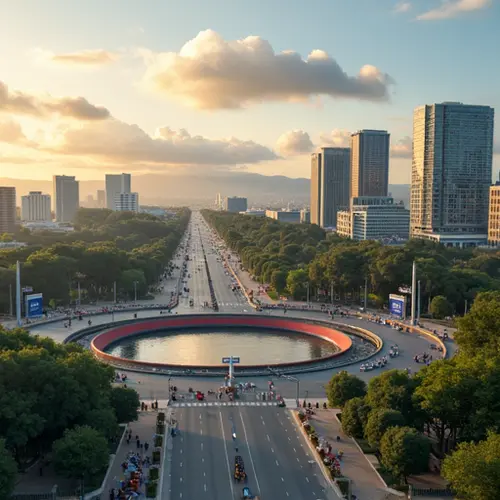
The Economic and Social Debate Around Hosting the Olympics
The 2028 Summer Olympics, officially known as Los Angeles 2028 or LA28, is set to take place from July 14 to July 30, 2028. Los Angeles, a city with a rich Olympic history, will host the Games for the third time, following the 1932 and 1984 editions. This event will mark the fifth Summer Olympics hosted by the United States and the first under the IOC presidency of Kirsty Coventry.
The "No Build" Approach
Los Angeles is adopting a "no build" strategy for the 2028 Olympics, focusing on utilizing existing venues and infrastructure rather than constructing new facilities. This approach aims to minimize costs and avoid the pitfalls of underutilized venues post-Games. However, significant investments are being made in upgrading transportation and revamping existing infrastructure, ensuring long-term benefits for the city.
Economic Impact
A study by the University of California, Riverside, estimates an $11 billion economic impact from the Games, including $7 billion in direct spending. The event is expected to create 79,000 full-time jobs and generate $167 million in tax revenue. The organizing committee, LA28, anticipates over $4.4 billion in revenue from sponsorships and ticket sales.
Lessons from Past Olympics
Past host cities like Montreal (1976), Rio (2016), and Tokyo (2020) have faced challenges, including financial burdens and underutilized venues. Los Angeles aims to avoid these issues by leveraging its existing infrastructure and focusing on sustainable investments.
Key Projects
Major infrastructure projects include the Sepulveda Pass Metro ExpressLanes ($13.8 billion) and the Southeast Gateway Line ($7.1 billion). These projects are designed to improve transportation and connectivity, benefiting both the Olympics and the city's residents long after the Games.
Risks and Challenges
Potential risks include cost overruns, delays, and labor shortages. However, careful planning and strategic investments are expected to mitigate these challenges, ensuring a successful and sustainable event.

 Nederlands
Nederlands
 English
English
 Deutsch
Deutsch
 Français
Français
 Español
Español
 Português
Português